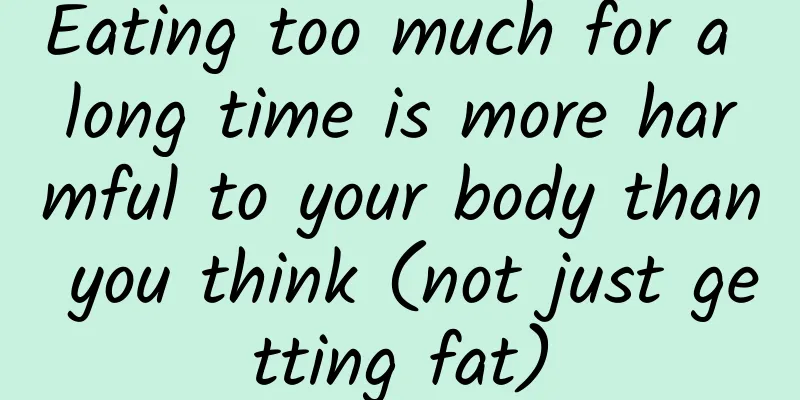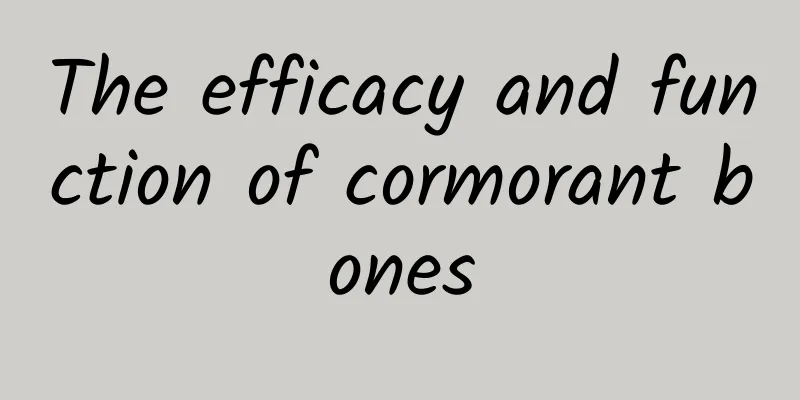Eating too much for a long time is more harmful to your body than you think (not just getting fat)

|
We all have times when we eat too much. I usually eat too much without realizing it. It’s not intentional, but by the time I realize it, it’s usually too late. I don’t know if you have had this experience. Today, let’s talk about why we often eat too much without realizing it, and what effects will eating too much often have on our bodies? Copyright images in the gallery. Reprinting and using them may lead to copyright disputes. In fact, there is a time lag between "really feeling full" and "realizing that we are full". This is because after we are full, our stomach will send information to the brain, and then the brain will react and control our hands and mouth. This will probably be 20 minutes later. Think about it, we are still eating during these 20 minutes, so how can we not feel full after eating? What effects will it have on the body if we often eat too much? The most direct effect is that our stomach will be expanded, which may squeeze other internal organs, causing bloating, nausea, vomiting, etc. Long-term overeating will increase the burden on the liver, kidneys, and pancreas, increase the risk of diabetes, high blood lipids, high uric acid, pancreatitis and other diseases, and pose a threat to life and health. Copyright images in the gallery. Reprinting and using them may lead to copyright disputes. In addition, studies have found that eating too much high-fat, high-energy food can increase feelings of sadness, tension, and worry, and all of these changes may affect sleep. If you eat too much for a long time, it means that you take in too much nutrition for a long time, which is likely to cause obesity. Obesity is a risk factor for many diseases and increases the risk of death. In addition, eating too much for a long time will disrupt the body's regulation of appetite, causing people to fall into a vicious cycle of overeating. Copyright images in the gallery. Reprinting and using them may lead to copyright disputes. Therefore, it is best to eat only until you are "80% full". In this state, we are almost full and can last until the next meal, but we will not feel bloated. When eating, try to "chew slowly" to give the brain more reaction time so that it can know "you are full" at the first time. That's all for today, see you next time. Reviewer: Wang Qiang, deputy chief physician, Department of Gastroenterology, Peking Union Medical College Hospital |
<<: How deep is your misunderstanding of the Ghost Festival?
>>: How do we control the rocket after it's launched?
Recommend
The efficacy and function of sheep kidney
Sheep kidney is a common type of traditional Chin...
Foxglove Pictures
Foxglove is a biennial or perennial woody plant o...
What if it is swallowed? The seal said: No problem, no problem
Produced by: Science Popularization China Author:...
The efficacy and function of blood man grass
Do you know what Xuemancao is? It is a kind of tr...
140 million people are playing! Is there a winning secret to the popular game of throwing eggs?
During the Spring Festival, in addition to eating...
Don't know what to do with your kids? Why not look for spring bugs?
Audit expert: Li Weiyang Well-known science write...
A miracle in the history of science: the contribution of intuition goes beyond understanding
Faced with more than 60 known elements, all chemi...
Can eating Poria cocos whiten your skin?
People are familiar with a lot of Chinese medicin...
What are the effects of Trichosanthes
Many friends have only a superficial understandin...
The efficacy and function of Yaowang Tea
Traditional Chinese medicine has a history of tho...
After waking up from a good night's sleep, my single eyelids became double. Am I sick?
Have you ever had this experience: your eyelids a...
Do you know the three major side effects of wolfberry?
Speaking of wolfberry, people generally think of ...
How to cure Pinellia ternata poisoning
Traditional Chinese medicine has always held a re...
Solar hydrogel: the "water cycle master" for greenhouse cultivation
Produced by: Science Popularization China Author:...
Why are cinema seats red? It's not about creating an atmosphere, it's about our cells
Those who often go to the cinema to watch movies ...









